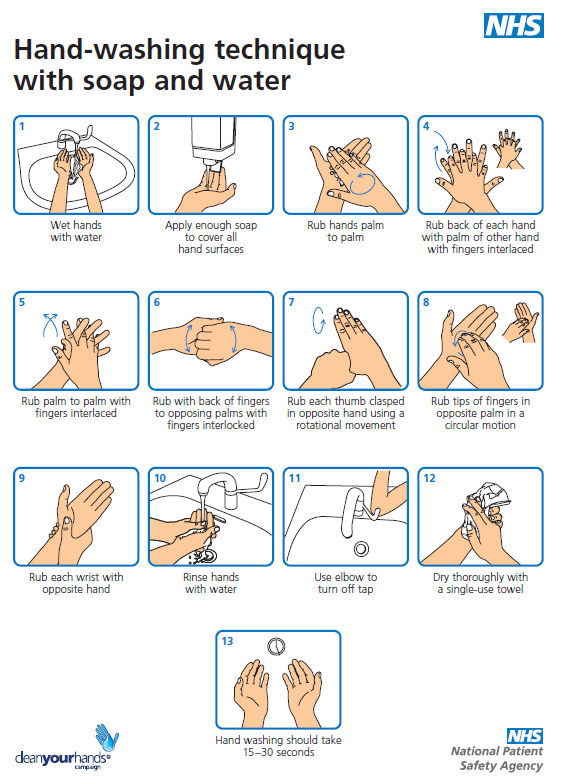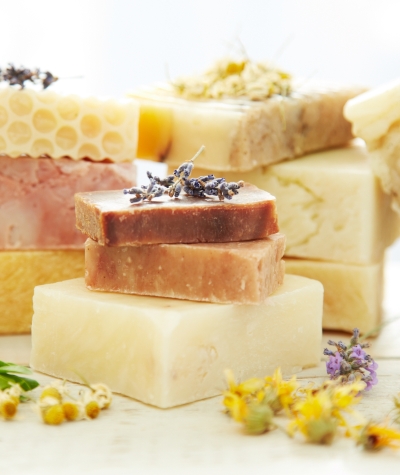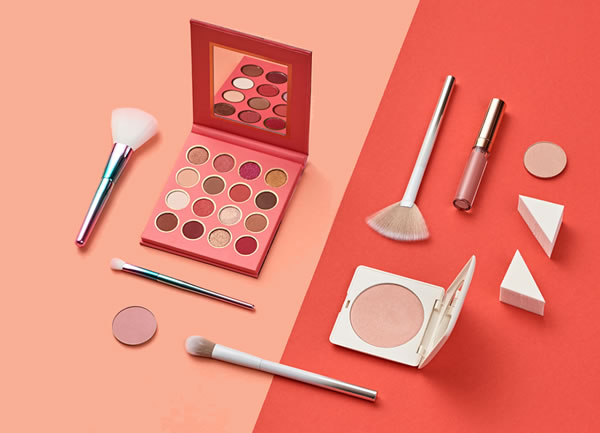On the market today, there is a wide choice of formulations available such as cleansing bars, liquid washes, foams, scrubs, masks, creams and lotions but perhaps the most common and widely used are the traditional soaps, gels and 'liquid soaps'.
Most dirt contains traces of oil and grease, which stick to the surface of the skin. In order to remove this dirt we might think that rinsing with water would be enough, but water alone is actually very inefficient at making things "wet". As well as being attracted to itself, a thin layer of air often remains between water and the skin when the two come into contact.
The main functional ingredients within a soap bar or liquid soap product are surfactants. When the products are used the surfactants present mix with the water allowing the water to "wet" surfaces more efficiently. The surfactant-water solution is then able to surround the specks of dirt and they are removed from the skin when rinsed away. This holding of solid and oil particles in suspension so that they can be rinsed away is known as an emulsifying action.
Agitation of the water solution, for example by rubbing hands together during washing, also aids the process of removing dirt.
Other ingredients may also be added to the basic soap formulation to further enhance the product, some examples include:
-
fragrance;
-
moisturising materials; and
-
antimicrobials/antibacterials.
Are soap products safe?
Yes. Safety is the number one priority for the cosmetics industry. All cosmetic products are subject to a rigorous safety assessment before being placed on the market. The skin's natural pH (the balance between acid and alkaline) is around pH 5.5. Traditional soap is extremely alkaline (pH 8-10) and excessive use can cause irritation and dryness by removing oils from the skin's protective layer. These effects can be helped by moisturising the hands after soap use. Bar soap and liquid soaps and gels have a long history of safe use.
Infectious viruses
Health authorities advocate the importance of personal hygiene in limiting the spread of contagious infection; and in particular to have good respiratory habits (such as using a tissue to catch and 'bin' the germs) and hand hygiene.
With regard to the flu virus, NHS Direct advises "maintaining good basic hygiene, for example washing hands frequently with soap and water to reduce the spread of the virus from your hands to face, or to other people".
Sometimes soap and water are not readily available and here alcohol-based hand rubs or gels may be beneficial, according to the International Scientific Forum for Home Hygiene. Although they could be stocked alongside traditional soaps, they may also be displayed with baby products and cleansers or near the pharmacy section.
You can read the NHS guidance for washing your hands effectively. This is handy guidance for times when infectious viruses are circulating.

Hooray for Handwashing
The UK Cleaning Products Industry Association (UKCPI) represents UK producers of household washing and cleaning products (such as laundry and dishwashing products, cleaners for use in kitchens and bathrooms and bar soaps). It also covers the interests of the institutional and industrial cleaning sector whose cleaning and hygiene products are used in hospitals, schools, care homes and catering environments.
UKCPI has launched a new handwashing and cleanliness initiative for schools called "Hooray for Handwashing", a fun and easy way to teach young children good health habits.
The programme provides background information on health and hygiene, a story, posters and poems for children. It is used as part of the Personal, Social, Health and Citizenship curriculum within schools. Teachers can get in touch with UKCPI from the Hooray for Handwashing webpage.
Where can I find out more?
Health Protection Agency information on handwashing.
NHS advice on measures to prevent the spread of flu.


